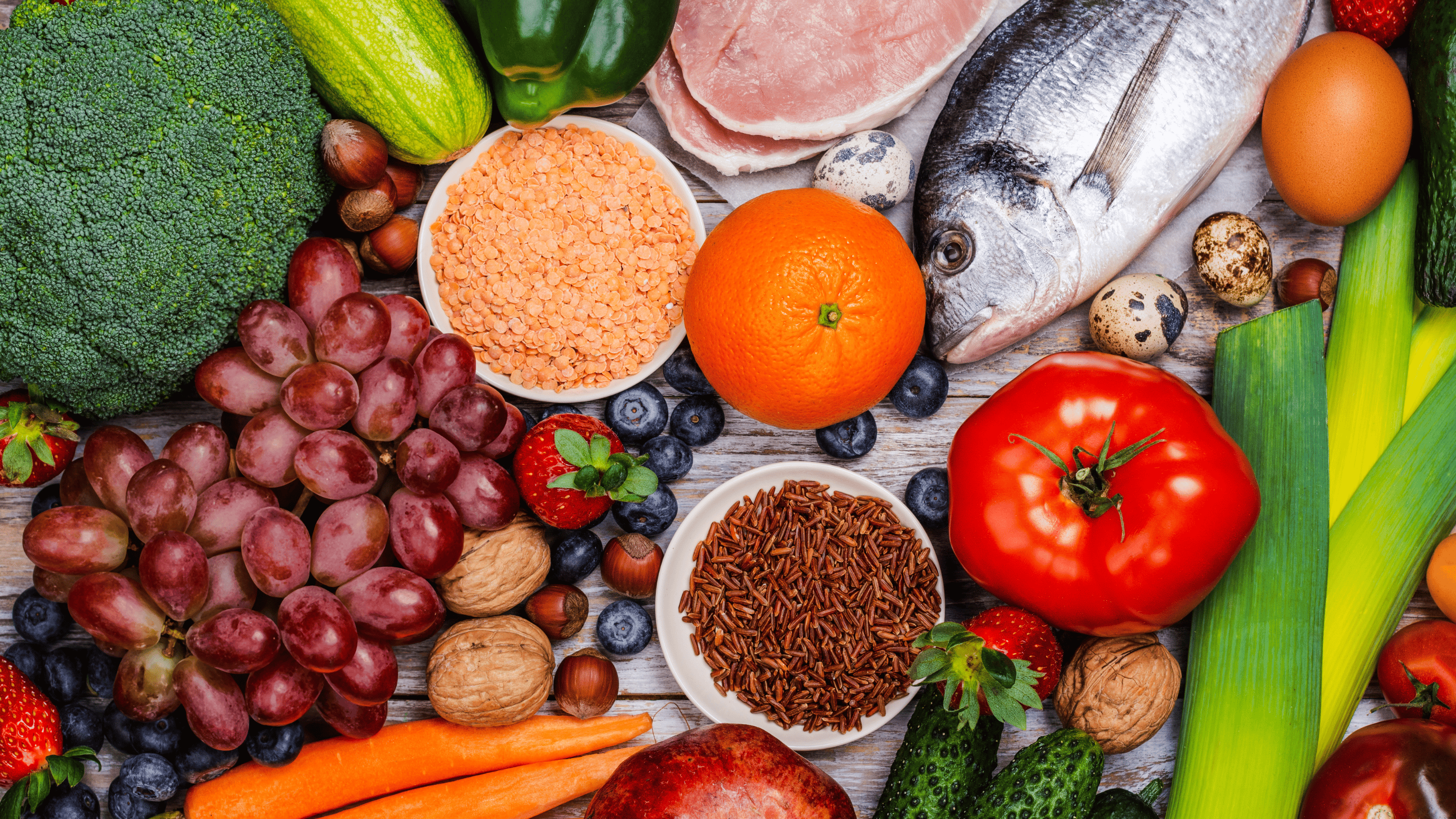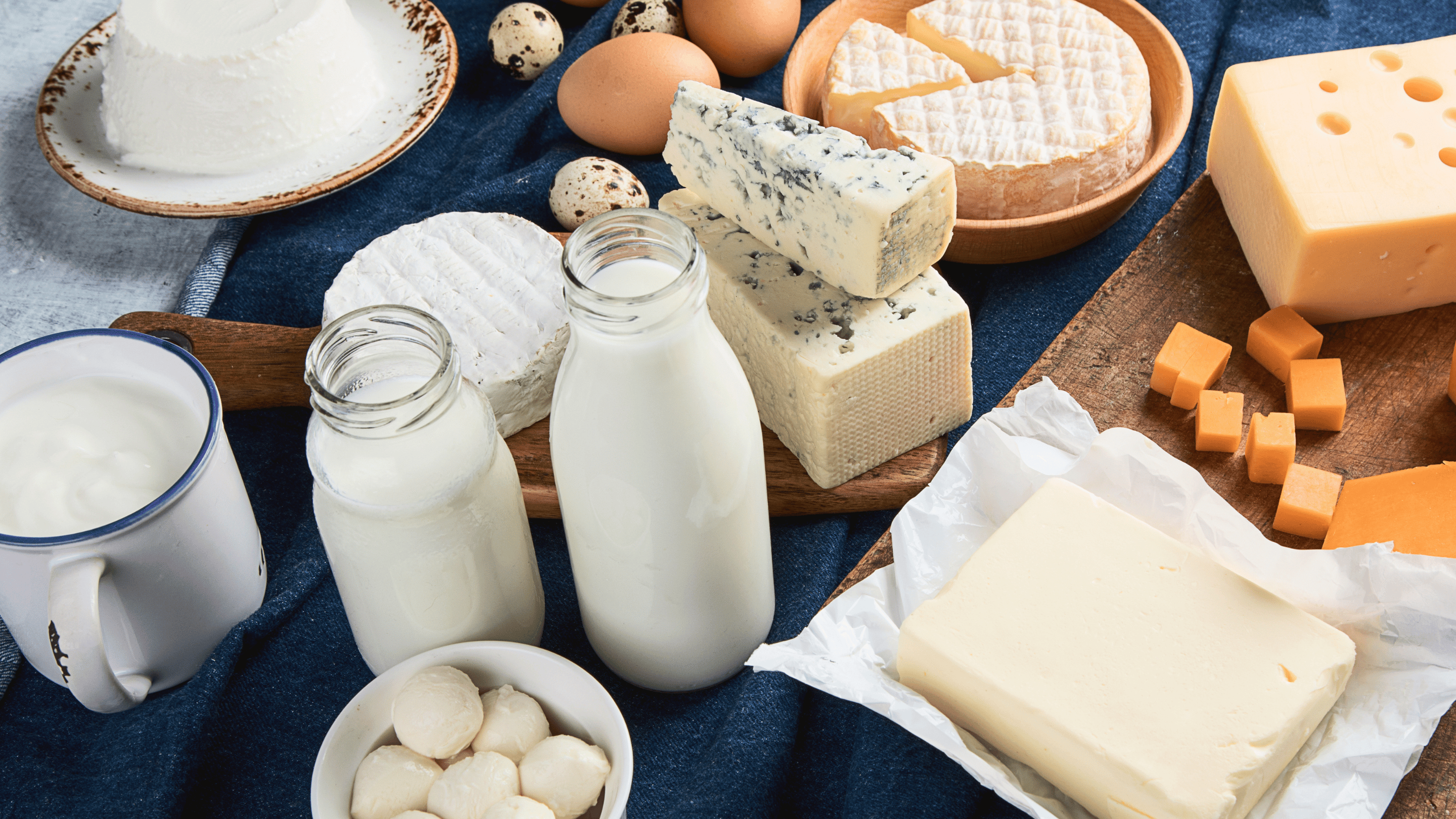Trying to conceive? Your diet could be the key to boosting your fertility. At Thomson Fertility Centre, we understand that navigating nutrition advice can be overwhelming. That's why we've put together this straightforward guide to help you make informed choices about what you eat.
We've done the research so you don't have to. Our recommendations are based on the latest scientific studies and expert insights. We'll cover:
Foods that can enhance your fertility
Key nutrients your body needs
What to avoid to protect your reproductive health
No fad diets or unrealistic expectations here – just practical, actionable advice you can start using today. Whether you're just beginning your fertility journey or have been trying for a while, these tips can help optimise your body for conception.
Ready to take control of your fertility through nutrition? Let's dive in.
Embrace the Mediterranean approach
A Mediterranean-style diet rich in fruits, vegetables, whole grains, lean proteins, and healthy fats can boost fertility for both men and women. This balanced approach provides essential nutrients that support reproductive health.

Key nutrients for fertility
A balanced diet rich in specific nutrients can support reproductive health for both men and women. Consider focusing on these key nutrients:
Antioxidants
Consume a variety of colourful fruits, vegetables, nuts, and whole grains to potentially improve egg and sperm quality.
Omega-3 fatty acids
Fatty acids Include sources like fatty fish (salmon, mackerel), flax seeds, chia seeds, and walnuts to support foetal development and overall fertility.
Proteins
Incorporate plant-based options like beans, lentils, nuts, and seeds to help maintain hormonal balance.
Full-fat dairy
Choose full-fat dairy products over low-fat options, as some studies suggest potential fertility benefits.

Iron
Ensure adequate iron intake through foods like beans, lentils, spinach, and fortified cereals.
Folate/Folic Acid
Consume dark leafy greens, citrus fruits, legumes, and fortified grains to help prevent birth defects.
Consider a prenatal vitamin to ensure you are getting enough folic acid, iron, and vitamin D.
Zinc and selenium (for men)
Boost sperm health with zinc and selenium-rich foods such as sunflower seeds, Brazil nuts, and seafood.
Always consult with a healthcare professional before starting any new supplement regimen.
For more detailed information on fertility-boosting nutrients and supplements, check out our comprehensive guide here.
Foods and substances to limit to boost fertility
When trying to conceive, it's advisable to moderate or avoid certain foods and substances that may potentially impact fertility:
Trans fats
Often found in fried foods and some baked goods. Opt for healthier fats instead.
Alcohol
Can deplete essential nutrients and disrupt hormonal balance. Consider reducing or eliminating alcohol consumption.
Processed and high-sugar foods
May lead to hormonal imbalances. Choose whole, nutrient-dense foods instead.
Sugary drinks
Linked to reduced fertility in some studies. Opt for water, herbal teas, or naturally flavoured water.
Raw or unpasteurised products
May contain harmful bacteria. Ensure all animal products are thoroughly cooked and dairy is pasteurised.
High-mercury fish
Limit intake of shark, swordfish, and king mackerel. Choose lower-mercury options like salmon or trout.
Excessive soy
May interfere with hormone levels in large amounts. Consume in moderation.
Low-fat dairy
Full-fat dairy may be more beneficial for fertility. Consult your healthcare provider for personalised advice.
Caffeine
Limit intake to 1-2 cups of coffee daily to avoid potential interference with nutrient absorption.

Remember, moderation is key. Every person's nutritional needs are unique, so it's best to consult with a doctor or registered dietitian for personalised advice.
For more comprehensive information on lifestyle changes that can enhance your fertility, please read our guide here.
Your fertility journey is unique
Every path to parenthood is as individual as you are. While general advice can be helpful, it's important to remember that what works for one person may not be the ideal approach for another. Factors such as age, overall health, genetic predispositions, and lifestyle can all influence fertility in complex ways.
If you have concerns about your reproductive health or are struggling to conceive, don't hesitate to seek professional guidance. A fertility specialist can provide personalised advice, conduct necessary tests, and recommend tailored treatments if needed.
At Thomson Medical, we understand the emotional and physical challenges that can come with fertility issues. Our team of experienced healthcare professionals is here to support you every step of the way, offering compassionate care and evidence-based treatments to help you achieve your dream of parenthood.
Remember, you're not alone on this journey. Reach out to us for support, guidance, and expert care as you navigate your unique path to starting or expanding your family.
For more information, contact us:
Thomson Fertility Centre
- Paragon: +65 6252 7766
Thomson Specialists (Women's Health)
- Paragon (female doctor): +65 6735 0300
- Woodleigh: +65 8684 0153
Thomson Women's Clinic
- Bukit Batok: +65 6569 0668
- Choa Chu Kang: +65 6893 1227
- Jurong: +65 6262 8588
- Punggol: +65 6243 6843
- Sembawang: +65 6753 5228
- Sengkang: +65 6388 8125
- Serangoon (female doctor): +65 6382 3313
- Tampines: +65 6857 6266
- Tiong Bahru: +65 6276 1525
